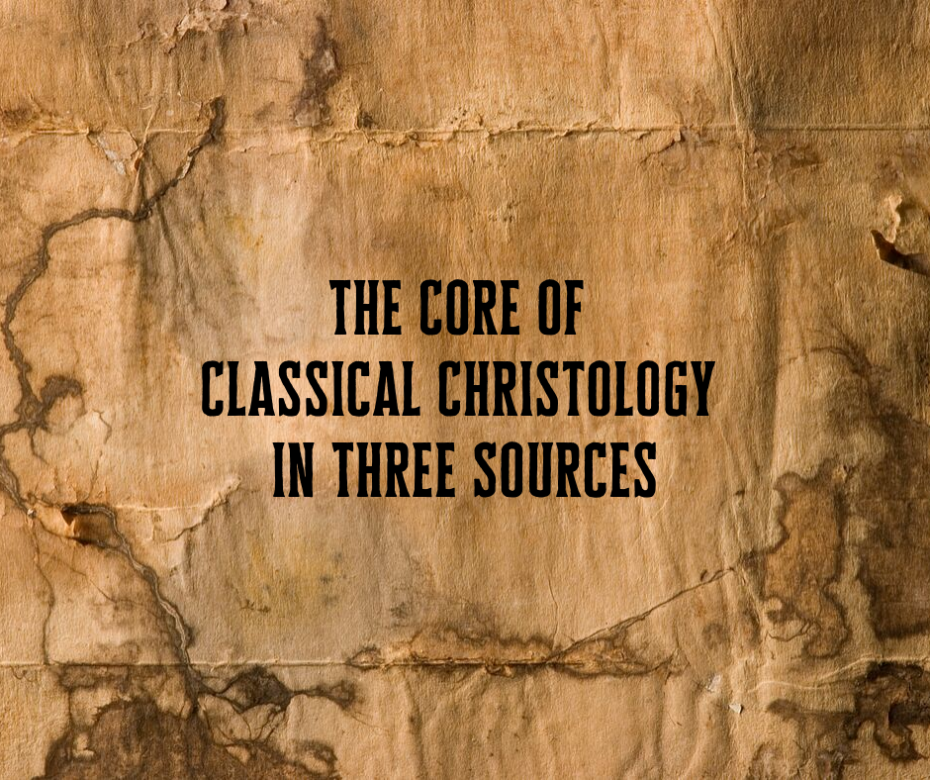Who is Jesus? What kind of a man is He? Was He a man at all? Why can He give believers eternal life?
Christology is the branch of theology that studies questions about the person and work of Christ.
As you can imagine, hundreds of books have been written to answer those questions. Where can you start?
For simplicity’s sake, I think the core of classical Christology can be summarized by three simple sources.
The first source comes from Tertullian (AD 160-240), an early theologian who explained the Trinity this way: God is tres personae, una substantia—three persons, one substance. That minimalist understanding needed to be fleshed out but provided the basic framework for understanding how God could be three in one. What did Tertullian mean? There is a difference between the persons and the divine nature. God is triune with respect to the persons, but one with respect to the divine nature. If each person had His own nature, we would have three gods. But since the three persons equally share in one “substance” or divine nature, They are one God. For our purposes, it is important to note that within the 2nd century, Jesus was considered God, equal with the Father and the Spirit.
The second source is the Nicene Creed (or more accurately, Nicene-Constantinopolitan Creed, AD 325, 381). These two councils further outlined the doctrine of the Trinity—suggesting how Father, Son, and Spirit are distinct but united. Here are some quotes:
We believe in one God,
the Father almighty,
maker of heaven and earth,
of all things visible and invisible.
And in one Lord Jesus Christ,
the only Son of God,
begotten from the Father before all ages,
God from God,
Light from Light,
true God from true God,
begotten, not made;
of the same essence as the Father.
Through him all things were made…
And we believe in the Holy Spirit,
the Lord, the giver of life.
He proceeds from the Father and the Son,
and with the Father and the Son is worshiped and glorified.
Notice the similarities between the Nicene Creed and Tertullian. Both affirmed there are three persons, Father, Son, and Spirit, who are distinct from each other. But as with Tertullian, Nicaea says the three are unified at the level of the divine nature. The Son is “of the same essence as the Father.” Although the Creed gives us less information about the Holy Spirit, the Spirit’s divinity is implied by being “worshiped and glorified” along with the Father and the Son.
The third source is the Chalcedonian Creed. Whereas the Nicene Creed was about the Trinity, the Chalcedonian Creed was more particularly about Christology. It further clarified how Jesus’ humanity and divinity unite together. It used the same basic framework of distinguishing between person and nature and applied it to Jesus. In sum, it confessed that Jesus is one person with two natures: one human and one divine:
We, then, following the holy Fathers, all with one consent, teach men to confess one and the same Son, our Lord Jesus Christ, the same perfect in Godhead and also perfect in manhood; truly God and truly man, of a reasonable [rational] soul and body; consubstantial [co-essential] with the Father according to the Godhead, and consubstantial with us according to the Manhood…to be acknowledged in two natures, inconfusedly, unchangeably, indivisibly, inseparably; the distinction of natures being by no means taken away by the union, but rather the property of each nature being preserved, and concurring in one Person and one Subsistence, not parted or divided into two persons, but one and the same Son, and only begotten, God the Word, the Lord Jesus Christ.
Put simply, classical Christology said that Jesus is fully God and fully man.
Many Christians think the Creeds are authoritative. Some think they are as inspired as Scripture. Because I am a Baptist and a Biblicist, the Creeds have no inherent authority over me. My conscience is not bound by them. Everything they teach must be judged in light of the Word. And something is only authoritative insofar as it accurately teaches the truth of Scripture.
As it happens, I do believe the Creeds got it basically right. They established a clear framework for understanding the Biblical evidence about the nature of the Godhead and the deity of Jesus Christ. Over the next few blogs I hope to prove that to you from the Bible.


